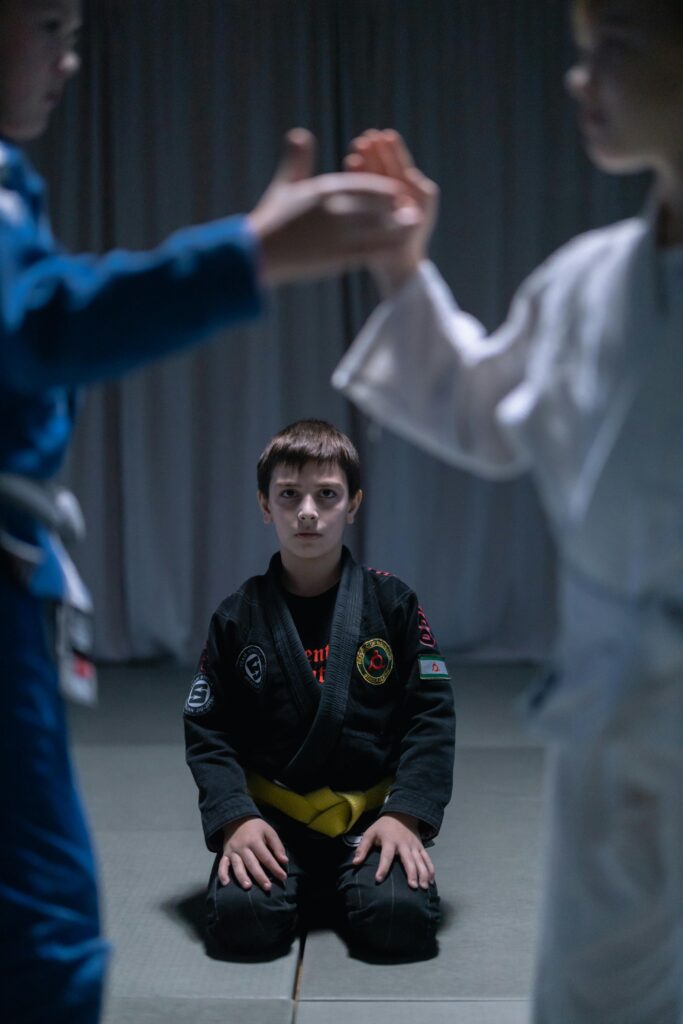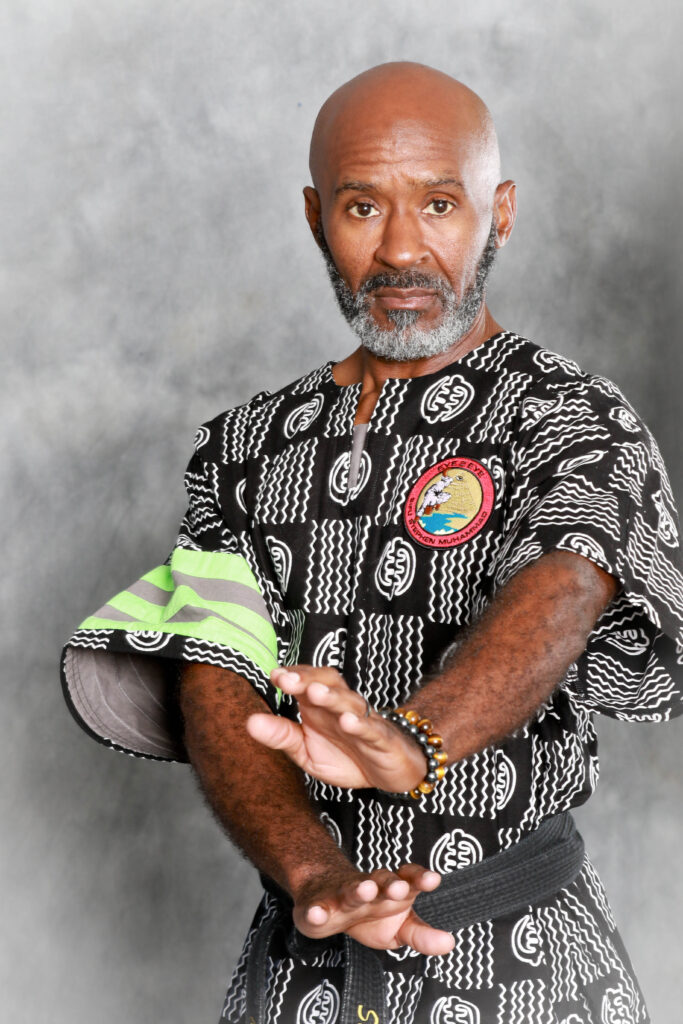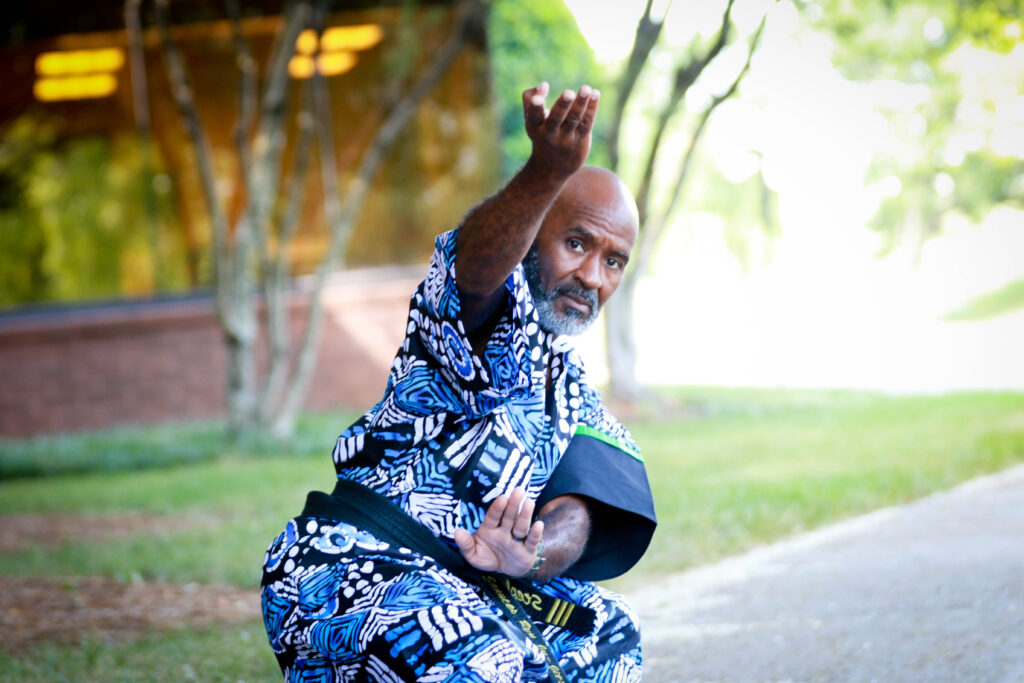Staying safe doesn’t start with strength, speed, or even technique. It starts with something much simpler but often overlooked: awareness.
Whether you’re walking through a parking lot, taking your kids to school, or heading home from a late-night shift, being aware of your surroundings can make all the difference.
It’s not just about spotting trouble—it’s about staying two steps ahead of it. That’s why situational awareness isn’t just helpful; it’s your greatest weapon.
Learning how to sharpen your awareness puts you in control. It’s the first line of defense for you, your family, and anyone depending on you. And here’s the good news: situational awareness is a skill anyone can learn.
What is Situational Awareness, and Why Does It Matter?
Situational awareness is simple—it means knowing what’s going on around you, being alert to changes, and spotting trouble before it has the chance to surprise you.
It’s about being mentally present whether you’re walking down a quiet street, sitting in your car, or running errands in a busy mall.
Here’s what I tell my students: predators look for easy targets. Someone glued to their phone or lost in their thoughts is exactly what they want. But when you’re aware, you’re not just another easy mark. You’re in control.
You’re the one spotting what doesn’t belong, and that changes everything. Awareness doesn’t just reduce your chances of getting caught off guard—it puts you ahead of the game.
The Consequences of a Lack of Awareness
Think of a time you zoned out and missed something obvious, like a turn while driving or someone calling your name.
Now picture missing the subtle signals of a stranger following you too closely or someone behaving strangely. That’s when zoning out becomes risky.
When you’re not paying attention:
- You’re vulnerable to surprise. Trouble comes fast when you’re not ready for it.
- You might walk into danger unknowingly. Bad lighting, empty spaces, and unsafe areas are easy to miss when you’re distracted.
- You lose time to react. A few seconds can be the difference between safety and being stuck.
Awareness isn’t about being scared or paranoid. It’s about confidence. It gives you the edge to see danger coming, move smart, and stay out of harm’s way.
Why Awareness is Better Than Reaction
The best way to win a fight is not to start one. I teach people this all the time. If you’re aware, you’ll spot a problem before it turns into something you need to “handle.” And trust me, that’s powerful.
Let’s say you notice someone lingering near the parking lot exit where you’re heading. If you see it early, you have options—you can take a different route, get someone to walk with you, or simply wait. You avoid the problem entirely. That’s awareness.
Reacting comes after the trouble has started. By then, you’re already at a disadvantage. But when you’re aware, you’re ahead of the situation. And when you’re ahead, you have control.
That’s why awareness is your greatest weapon—it stops the threat before it has the chance to strike.
The Core Components of Situational Awareness
Situational awareness isn’t complicated. It’s a set of habits you build over time, starting with these three core components:
1. Observation and Assessment
This is where it all starts: noticing what others miss. Look for the details. Ask yourself what stands out.
- Where are the exits when you enter a new space?
- Is anyone acting oddly—lingering, staring, or following?
- Are there blind spots around you when you’re walking or driving?
The goal is simple: stay aware of your surroundings so nothing catches you off guard.
2. Mindfulness and Staying Present
Being aware means being fully “here.” Put your phone down. Keep one ear free if you’re wearing headphones. Watch what’s happening around you.
Your phone won’t save you in a dangerous moment, but your awareness will. The more you practice staying present, the easier it becomes to notice when something isn’t right.
3. Predictive Thinking: Anticipating Risks
This is where you get ahead of the game. Ask yourself small “what if” questions in any situation.
- What if someone approaches me unexpectedly?
- Where’s my nearest exit if I need to leave fast?
- What would I do if someone seems threatening?
These thoughts may feel small, but they train your brain to anticipate problems—and spot solutions—before you need them.
Practical Steps to Strengthen Your Situational Awareness
You don’t need fancy training to improve your awareness. You just need to start building better habits. Here are a few ways you can get started today:
1. Eliminate Distractions
Distractions are awareness killers. When you’re out in public:
- Keep your head up and off your phone. Look around you instead.
- Avoid zoning out, even in places you’re familiar with. Safety starts with presence.
- Pay extra attention in areas like parking lots, gas stations, or ATMs. These are common places where people get targeted.
2. Develop Observation Habits
Here’s a tip: make it a game. Walk into a room and ask yourself a few questions:
- How many people are here?
- Where are the exits?
- Does anyone seem out of place?
The more you practice, the sharper you’ll get. Pretty soon, you’ll notice details others miss—and that’s a skill that can keep you safe.
3. Use Martial Arts to Build Awareness
Martial arts, like the techniques I teach at Eye2Eye Combat, do more than show you how to fight. They train your mind and body to work together, building confidence and awareness you can use anywhere.
Through martial arts, you learn:
- How to position yourself safely in any situation.
- How to anticipate someone’s intent by reading their movements.
- How to act with confidence when others might panic.
I’ve seen this transformation happen over and over again. People don’t just learn how to fight—they learn how to think ahead, stay calm, and stay ready.
Situational Awareness for Families: Protecting What Matters Most
Situational awareness is more than just a skill for adults—it’s a critical tool that families can use every day to stay confident and safe.
When you teach your family to pay attention, think ahead, and trust their instincts, it changes everything. You’re not just giving them peace of mind; you’re building habits that can last a lifetime.
Teaching Kids the Basics of Awareness
Kids have a natural curiosity, but they don’t always spot risks the way we do. As adults, it’s our job to help them notice what matters and react smartly. Start with the basics:
- Teach them to identify “safe adults”—trusted figures like teachers, security staff, or family friends who can help in an emergency.
- Explain why staying close in public places is important. They should know that wandering too far away can be risky.
- Build habits like always looking both ways before crossing a street or staying alert when cars are reversing in driveways or parking lots.
These small lessons add up over time. Kids who know what to watch for will be calmer, safer, and more aware of their surroundings.
Building Family Safety Habits
Situational awareness works best when practiced together. Making it part of your family’s routine not only sharpens skills but also builds trust.
- Look for exits when you enter a new space. Whether it’s a mall, restaurant, or theater, teach everyone to note where the exits are.
- Play “what would you do?” scenarios as a family. For example: “What would you do if we got separated here?” These questions prepare kids to think ahead without fear.
- Work as a team to spot details when you’re out. Turn it into a game. Who can find the closest exit, someone acting suspicious, or a spot to regroup if needed?
These habits turn awareness into second nature. Instead of walking through life distracted, your family will move through it with confidence and purpose.
The Impact of Awareness on Family Confidence
When your family practices awareness, something powerful happens—they stop feeling afraid. Kids learn to trust their instincts. Parents gain confidence knowing their loved ones are prepared.
It’s not about making kids paranoid or anxious; it’s about giving them tools. When a child walks into a room and instinctively looks for exits, or calmly identifies a “safe adult” in a crowded space, that’s not fear—it’s strength.
Building awareness isn’t just about safety. It’s about empowering your family to move through the world with confidence, knowing they have control over their choices and reactions.
How Eye2Eye Combat’s Parenting Workshops Empower Families
At Eye2Eye Combat, we believe every family deserves to feel confident and safe. That’s why we’ve partnered with Bright Stars CDC to offer parenting workshops that combine practical parenting techniques with situational awareness and basic self-defense.
These workshops are all about real skills for real families.
What Makes These Workshops Unique?
Unlike other parenting classes, these workshops focus on tools you can use immediately. Whether you’re at home, on a school run, or in a crowded public space, the strategies are practical and easy to teach your family.
- Improve situational awareness for parents and kids by showing you what to look for and how to respond calmly.
- Learn to handle conflict without panic, whether it’s a heated moment with strangers or an issue at home.
- Practice practical self-defense techniques designed to help families move away from danger effectively and quickly.
You don’t need to be a black belt or martial artist to benefit from these tools. They’re simple, clear, and realistic—perfect for everyday families.
What You’ll Learn:
Situational Awareness at Home and in Public
You’ll learn how to identify risks, whether it’s at home, in your neighborhood, or out in a busy public space. Recognizing signs of trouble early gives you time to act.
Healthy Boundaries for Kids
Boundaries matter. We teach kids how to spot unsafe behavior, speak up confidently, and remove themselves from situations where something feels “off.” These are life skills that go beyond safety—they build inner strength.
Practical Safety Skills for Parents
As a parent, you’ll learn techniques to manage emergencies and guide your kids through tough moments. From staying calm in a conflict to planning your family’s response to danger, these skills are both practical and empowering.
Why It Works:
These workshops work because they focus on confidence, not fear. The goal isn’t to make families worry about what might happen; it’s to show them they can handle it if it does. When kids and parents learn together, they build habits that stick.
Imagine walking into a busy event with your family, scanning for exits without thinking, and knowing everyone is on the same page.
Picture your child recognizing someone acting “off” and instinctively moving closer to you without panic. That’s not just safety—that’s awareness in action.
At Eye2Eye Combat, we want families to feel strong, secure, and connected. These workshops don’t just teach safety skills; they change the way families see the world.
When Awareness Meets Action, Safety Follows
Awareness doesn’t end when you leave this page; it’s something you carry with you every day. It’s the skill that keeps you ahead, prepared, and confident.
At Eye2Eye Combat, we take this idea further with hands-on training and practical tools that work for real life. Our Parenting Workshops are all about teaching families how to stay aware, communicate better, and build unshakable confidence—at home, school, and everywhere in between.
Give your family the skills they need to stay sharp and safe. Let’s get started—because safety begins with you.
FAQs
1. What is situational awareness, and why is it important?
Situational awareness means being fully aware of your surroundings and recognizing potential threats early. It’s crucial because it helps you avoid danger before it escalates, keeping you and your loved ones safe.
2. How can I teach my child situational awareness without causing fear?
You can make learning situational awareness fun and engaging. For example, play games like “I Spy” to encourage observation skills, or create treasure hunts that require attention to detail. This approach helps children become more aware without feeling scared.
3. Can situational awareness really help in self-defense situations?
Absolutely. Being aware of your environment allows you to spot potential dangers early, giving you the chance to avoid or de-escalate situations before they become threats. It’s a key component of effective self-defense.
4. How can families practice situational awareness together?
Families can incorporate situational awareness into daily routines by discussing “what-if” scenarios, identifying exits when entering new places, and staying alert as a team during outings. Making it a shared activity strengthens everyone’s safety habits.





